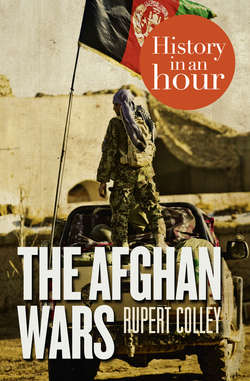Читать книгу The Afghan Wars: History in an Hour - Rupert Colley - Страница 8
ОглавлениеThe Third Anglo-Afghan War
A third Anglo-Afghan War erupted in 1919. Afghanistan had remained neutral during the First World War but Amanullah Khan’s position as ruler was threatened by civil unrest. As a means of diverting attention from internal dissension and believing the British too exhausted after the exertions of war to resist, Amanullah announced his intention to free his country from the Treaty of Gandamak and invade British India.
On 2 May 1919 Afghan forces crossed the border into India and occupied the strategically important town of Bagh as a prelude to further attack. But within a week British and Indian troops had forced the invaders out. The British pushed on into Afghanistan and fought a number of skirmishes along the way. The use of the RAF proved decisive and bombs dropped on the presidential palace in Kabul devastated Afghan morale and Amanullah’s will to resist.
An armistice signed on 8 August 1919 resulted in the Treaty of Rawalpindi in which Britain agreed to annul the Treaty of Gandamak and play no further role in shaping Afghanistan’s foreign policy. Although Afghanistan had never been part of the British Empire, it now saw itself as entirely free of Britain’s interference, and, to celebrate, 19 August was declared Afghan Independence Day, an occasion still celebrated today.
